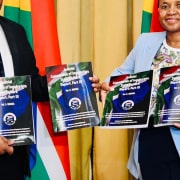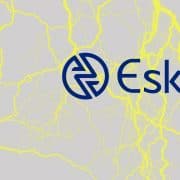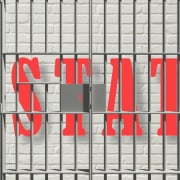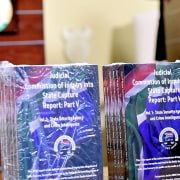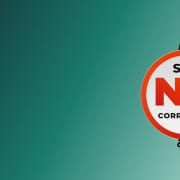|
Getting your Trinity Audio player ready...
|
The Zondo commission of inquiry into allegations of state capture has released three reports to date, each one lengthier – and more disturbing – than the last. Commission chairperson Acting Chief Justice (ACJ) Raymond Zondo has asked for a two-month extension to complete the fourth and final part.
Zondo’s reports lay bare the deep-rooted corruption in public procurement, perpetrated by government departments, private sector service providers, and state-owned entities, among others – all the way up to former president Jacob Zuma. Urgent action is crucial, and if it wants South Africans to believe it is serious about tackling corruption, the governing ANC has to stop shielding the corrupt and dithering about what to do with them, and allow the law to take its rightful course.
To date the public has had scant reason to trust that any political party is willing, or even able to make good on their many anti-corruption promises, which flow especially thick and fast around election time.
This is where civil society enters the picture. Civil society organisations (CSOs) can play an important role in ensuring that Zondo’s mammoth task was not for naught, and the ACJ knows it. He emphasised in one of his reports that “the involvement of civil society organisations and commentators is a significant but under-utilised control mechanism in dealing with corruption”.
“The commission supported efforts by CSOs to make submissions on reforms that may work,” commented Corruption Watch’s senior journalist Moepeng Talane, who is well-versed in the revelations coming out of the Zondo commission, having covered the hearings since they began in August 2018, for the most part on a daily basis. The body of work accumulated from this exercise is significant.
The recommendations include, Talane added, the protection, incentivisation and full support of whistle-blowers; the professionalisation and sustained, regular training of the procurement sector; and the establishment of a stand-alone anti-corruption agency. There are three areas in which Corruption Watch has long had an interest.
“The wait may well be a long one, but given that President Cyril Ramaphosa intends to table his action plan in response to the recommendations before Parliament, that process makes it a worthwhile opportunity to make further submissions and hopefully help shape the reform that some of our government systems desperately need.”
Civil society gathers to talk about Zondo’s recommendations
To this end, the Open Contracting Partnership (OCP) recently held a community call to explore the roles of civil society, journalists, and other oversight actors in developing opportunities to collaborate with government, ensuring that public money is spent effectively, and building a strong open contracting ecosystem. Guest speakers included Tharin Pillay of Corruption Watch, Theo Chiviru of the Open Government Partnership, Edwin Muhumuza of OCP, and Cherese Thakur of amaBhungane, with facilitator Zuki Kota of the Public Service Accountability Monitor.
“This is a crucial time for the country in looking at advocating for procurement reform,” said the OCP’s Caroline James, opening the webinar. “[Our organisation’s] focus in South Africa is to work with National Treasury and other stakeholders to modernise and develop the procurement system into one that is more effective, creates value for money and is at its core more transparent. This will lead to greater efficiency in government but also allow for more effective monitoring, both from internal and external sources.”
“The broader civil society can help ensure that recommendations are addressed, and support the state so that the report doesn’t just become yet another 800-page-plus sitting on shelves collecting dust,” said Kota.
So how does it go about achieving this?
Broad coalition is vital for maximum effectiveness
Muhumuza highlighted the importance of a broad coalition. “Public procurement is too important to leave just to one group of people, either the politicians or the procurement practitioners. You have to build a very broad coalition as we’ve learned from other places, so you create space for civil society, for the private sector, for the government.”
This approach has been applied to other multi-sectoral groupings such as the Infrastructure Built Anti-Corruption Forum, which aims to prevent and fight corruption in the implementation of the infrastructure investment plan.
Chiviru spoke on the under-utilised partnership between government and civil society. “I think there is a recognition from the report itself, that civil society have not been involved especially in the monitoring of public procurement in South Africa. And I think it even speaks about the current legislations that government is developing and discussing in terms of addressing corruption and money laundering, in which no attempt has been made to create a partnership with civil society.”
Government agencies need to be more open to such arrangements, Muhumuza suggested. “They need to be a bit more welcoming to ideas that these civil society organisations bring because they [the CSOs] usually represent what you call the beneficiaries of the outcomes of public procurement and these beneficiaries are the public.”
The Open Government Partnership has seen how powerful and how important collaboration between government and civil society can be, said Chivuru, because the partnership itself was built on the model of government and civil society thinking together about the challenges that countries face at both national and local level, and creating reforms that actually enable the the transformation of people’s lives, especially around issues of anti-corruption.
“We have many examples. Ukraine, for example, where the collaboration between government and civil society has created a very transparent, open participatory procurement process. I think the government of Ukraine would not have been able to do that without the partnership of civil society, because that partnership brings in a perspective and skills that governments don’t have, because of the nature of how governments are built.”
Bringing the commission to the people
The Zondo commission hearings were broadcast to the public, but there still remains a substantial number of people who were not able to tune in. It goes without saying that their buy-in and understanding are crucial to the eventual implementation of the recommendations.
“If we don’t build a movement that entirely understands what the reports are saying, the government will not see the value of why they need to partner with civil society, because I think government is more scared of the implications of citizens understanding what is in the Zondo report,” said Chivuru.
Civil society can take that information to citizens, he added, to say “this is what the four years and the billion rands that have been spent are actually saying in terms of corruption. I think it goes down to simplifying the information in a way that empowers the citizen.”
Empowering citizens through knowledge will push government to build the partnership, Chivuru believes. And explaining to citizens what effect the amount of money that was stolen would have had on education, on health, on transport, how it could be servicing the citizen, what it all means to their daily lives and to their children, he said, can enable a movement.
As an organisation that has worked hard to accomplish exactly that, said Talane, “Corruption Watch is proud to have not only recognised the need for unpacking the complex issues arising from the evidence, but to sustain such a service with a vision to bringing the commission closer to people on the ground. Never before have we had such an opportunity as South Africans to learn about laws, policies, and systems that govern the day-to-day running of the government elected by us.”
Corruption Watch continues this mission with comprehensive articles unpacking the contents of each of the reports.
“It has also been a great learning experience for us as a civil society organisation, and we can only hope that we have served the public well,” said Talane.
But civil society’s job does not end at merely disseminating information, Chivuru said. “Civil society needs to take back the narrative because at the moment the reports of the Zonda commission are being used by politicians, by the different parties within the country, for grandstanding. We need to build the narrative that speaks to citizens in terms of making sure that the same pressure as before is applied. We need to build that engagement, and force government in turn to build partnerships and platforms like the Open Government Partnership.”
Technology and public procurement
Panellists agreed that the use of technology in procurement matters can have a big impact.
“E-procurement is a game changer in many societies,” said Muhumuza. “OCP is working closely with the Treasury to enhance that capability. It’s very difficult, for example, to have strong transparency if you’re still using a paper-based system, if you’re not publishing information, so whereas it’s not one of the key recommendations, I hope there is discussion going forward.”
Automating the procurement system as far as possible will improve the efficiency and also the transparency in the procurement process, he added.
Corruption Watch has already tapped into the advantages that technology offers in this space. The organisation launched its Procurement Watch tool in October 2021, along with a report on trends emerging from data published by National Treasury. The tool aggregates the treasury’s reports received from all procuring organs of state, and has a focus on deviations and expansions of contracts, and restricted suppliers.
“This [Procurement Watch] is a work in progress – but it’s an example of the kind of ecosystem that can grow out of civil society to do work in this area,” said Pillay.
Muhumuza noted that issues of beneficial ownership must be addressed. “Who is behind the companies that are getting tenders?”
Thakur also noted beneficial ownership transparency as a vital component in uncovering the truth. “Sometimes information on the actual participants in procurement fraud is obscured through shell companies and so on. And at the moment, our beneficial ownership transparency laws do not enable journalists to follow the money.”
Media have an important role to play
“The media should be engaged in diligent investigation and the exposure of wrongdoing,” said Thakur. “While most reporting happens after the tender is made, where there’s allegations of impropriety in the award itself, journalists can also look into tender processes as they are under way. So an example of this is amaBhungane, which is following closely the RMI4P (Risk Mitigation Independent Power Producer Procurement Programme), an initiative that seeks to procure further 200 megawatts of new generation capacity from a range of energy source technologies.”
Journalists were very useful to the team at the Zonda commission, she added, because they provided a narrative input to the masses of material submitted to and discussed at the commission.
“They played an important role in bringing procurement corruption to the fore and making it accessible to the public so they can understand exactly what went wrong and what is being done.”

